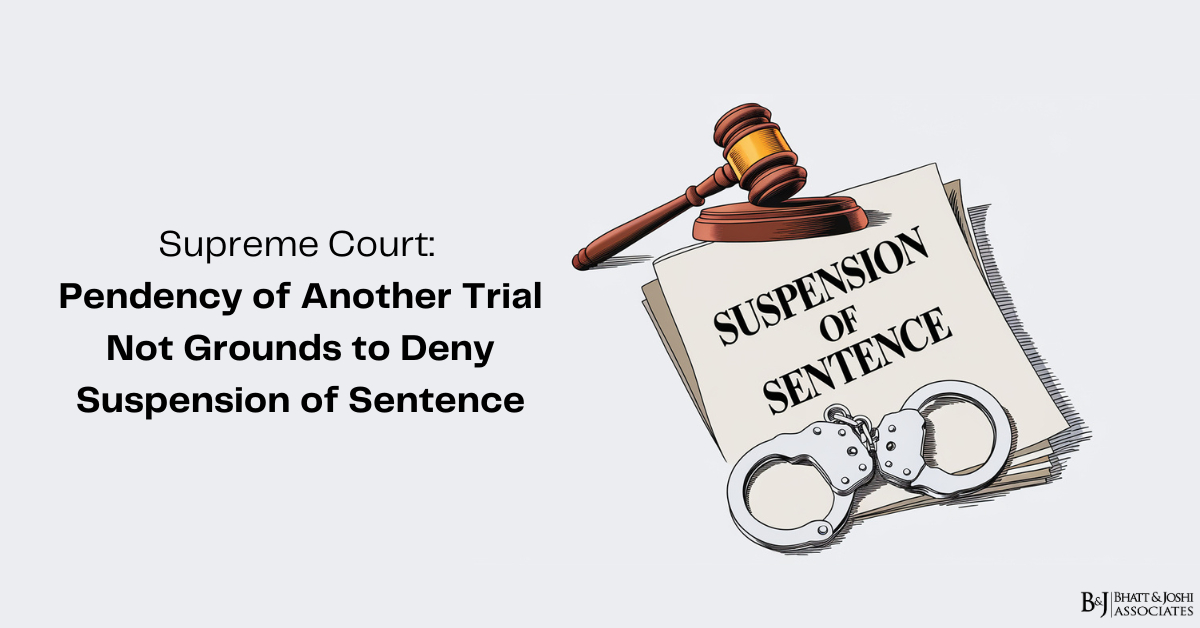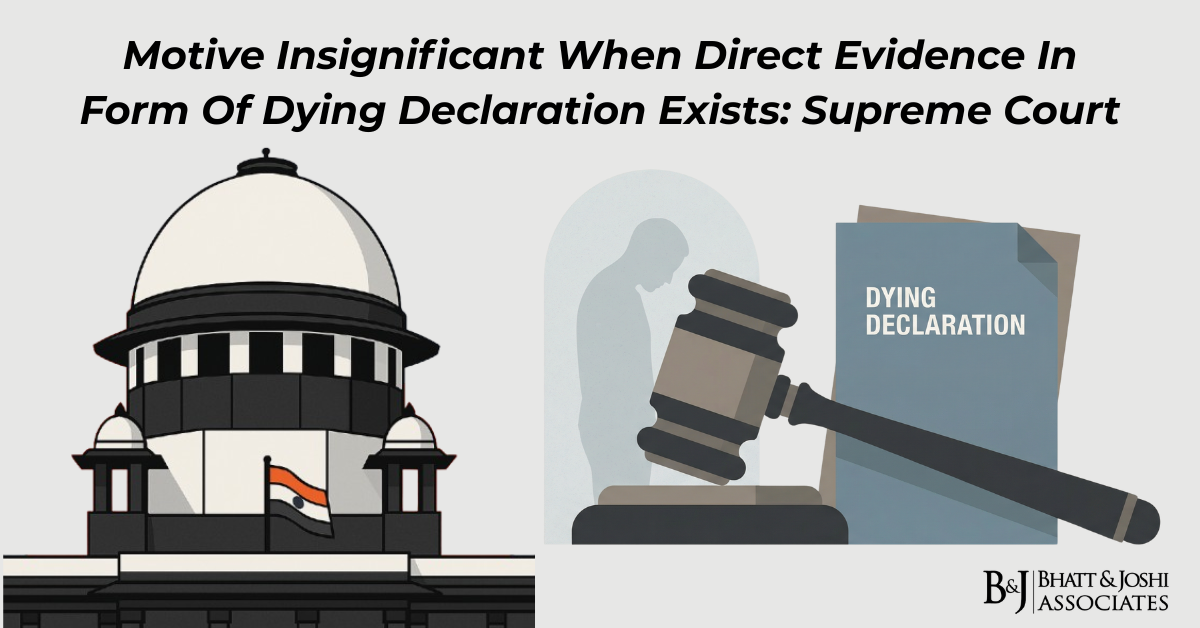Supreme Court on Suspension of Sentence: Pendency of Another Trial Not Grounds to Deny Suspension
Introduction
On October 4, 2024, the Supreme Court of India delivered a landmark ruling emphasizing the fundamental rights of accused persons under the Indian legal system. The Supreme Court ruled that an accused cannot be denied the benefit of suspension of sentence simply because they are facing another criminal trial. This decision, which has far-reaching implications for the judicial process, affirms the presumption of innocence and the fair application of law during criminal proceedings.
Background of the Case
The Parties Involved
Accused: Jitendra and others, including Narendra Singh
Respondent: State of Uttar Pradesh
Case Details
Case Title: Jitendra & Ors. vs. State of Uttar Pradesh
Citation: 2024 LiveLaw (SC) 782
Bench: Justices Dipankar Datta and Prashant Kumar Mishra
The appellants in this case had been convicted of murder and sought suspension of their sentence while appealing the conviction. However, the High Court denied them this benefit, partly on the grounds that one of the appellants, Narendra Singh, was facing trial in another unrelated criminal case. The Supreme Court’s decision to overturn this denial reflects a critical examination of the legal principles guiding suspension of sentences.
The Supreme Court’s Observations and Ruling
- Pendency of Another Trial is Not a Valid Ground
The Supreme Court made it clear that the mere pendency of another trial cannot be used as a reason to deny an accused the suspension of their sentence. Narendra Singh, one of the accused, had another pending criminal case, but the Supreme Court ruled that this alone was insufficient to block his request for suspension of sentence in the murder conviction. The bench noted, “After all, he is presumed to be innocent till found guilty,” reinforcing the principle of presumption of innocence.
- Parity Among Accused
The appellants argued for parity, highlighting that their co-accused had been granted the benefit of suspension of sentence. The Court agreed with this plea and granted Narendra Singh and the others the same relief, affirming the importance of equal treatment in the eyes of the law. This reflects the Court’s commitment to ensuring justice is served uniformly, without prejudice.
- Sufficient Grounds for Suspension of Sentence
The Court found that the appellants had presented sufficient grounds for the suspension of their sentences. In doing so, the bench reiterated that the decision to suspend a sentence must be based on the specific circumstances of the case and not be influenced by unrelated factors such as pending trials in other cases.
Legal Framework and Relevant Case Law on Suspension of Sentences
The legal foundation for the suspension of sentences in India is governed by Section 389 of the Code of Criminal Procedure (CrPC). This section grants appellate courts the discretion to suspend a sentence during the pendency of an appeal. The Supreme Court’s decision in Jitendra & Ors. builds on this framework, asserting that the application of Section 389 must be fair and consistent.
Relevant Case Laws
- Shivani Tyagi vs. State of U.P. & Anr.
In this case, the Supreme Court overturned a High Court decision that denied suspension of sentence based on the seriousness of the offense. The Court clarified that multiple factors must be considered when deciding such cases, not just the severity of the crime.
- Rama Narang vs. Ramesh Narang [1995 (2) SCC 513]
This judgment elaborated on the powers of appellate courts under Section 389 CrPC, emphasizing that the decision to suspend a sentence should be based on the likelihood of success in the appeal, the gravity of the offense, and the circumstances of the case.
- Atul @ Ashutosh vs. State of Madhya Pradesh [2024 CRL.APPEAL No.579]
Here, the Supreme Court granted suspension of sentence pending appeal due to anticipated delays in the appeal process, underscoring that the pendency of other trials should not be the sole factor in denying bail.
Key Legal Principles
Presumption of Innocence
One of the core principles reaffirmed by the Court in this case is the presumption of innocence. Every individual is presumed innocent until proven guilty, and this presumption must be upheld throughout the legal process. Pending trials in unrelated cases should not prejudice the rights of an accused in other legal matters.
Suspension of Sentence: A Discretionary Power
The Court also highlighted that the power to suspend a sentence is a discretionary one. Appellate courts must exercise this discretion judiciously, taking into account the specific facts and circumstances of each case. The decision to suspend a sentence should not be automatic but should be based on careful consideration of the merits of the case.
Fair Application of Justice
This ruling ensures that the judicial system remains fair and impartial, protecting the rights of the accused while maintaining the integrity of the legal process. By preventing the automatic denial of bail or suspension of sentence based solely on the existence of other trials, the Court ensures that each case is judged on its own merits.
Conclusion: Upholding the Rights of the Accused
The Supreme Court’s decision in Jitendra & Ors. vs. State of Uttar Pradesh marks a significant step forward in safeguarding the rights of the accused in India. By ruling that the pendency of another trial cannot be the sole reason to deny suspension of sentence, the Court has reinforced the principles of fairness, justice, and the presumption of innocence. This judgment is likely to influence future cases, ensuring that suspension of sentence applications are handled with greater care and consideration across the judiciary. The decision stands as a reminder that the pursuit of justice must be balanced with the protection of individual rights.
 Whatsapp
Whatsapp



